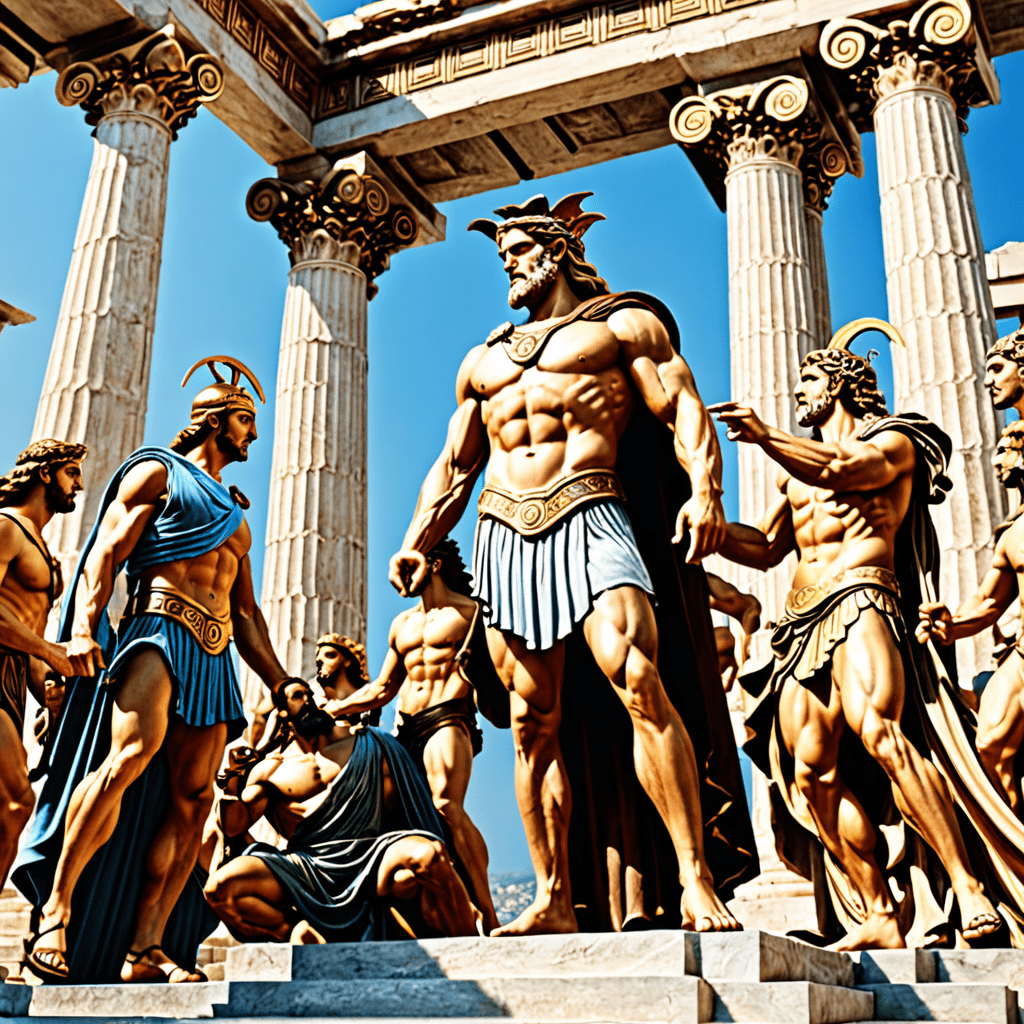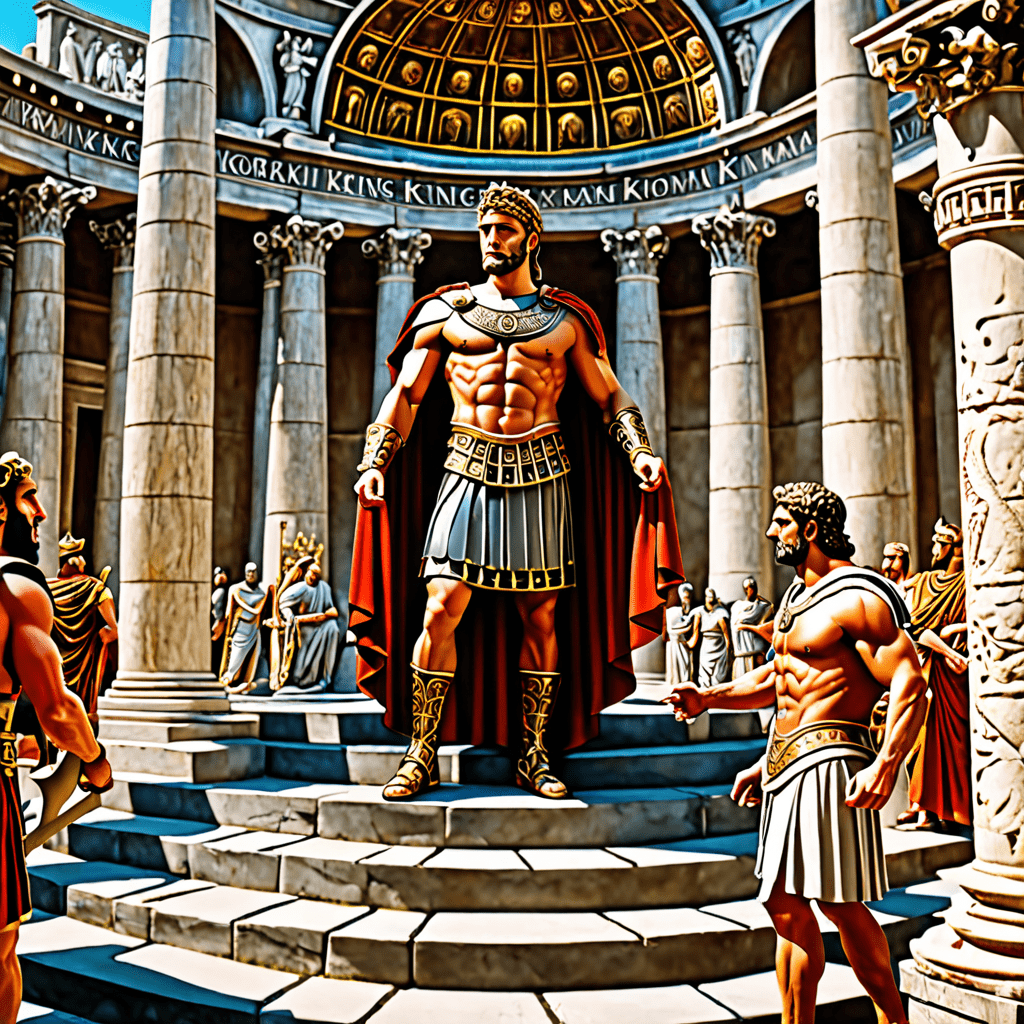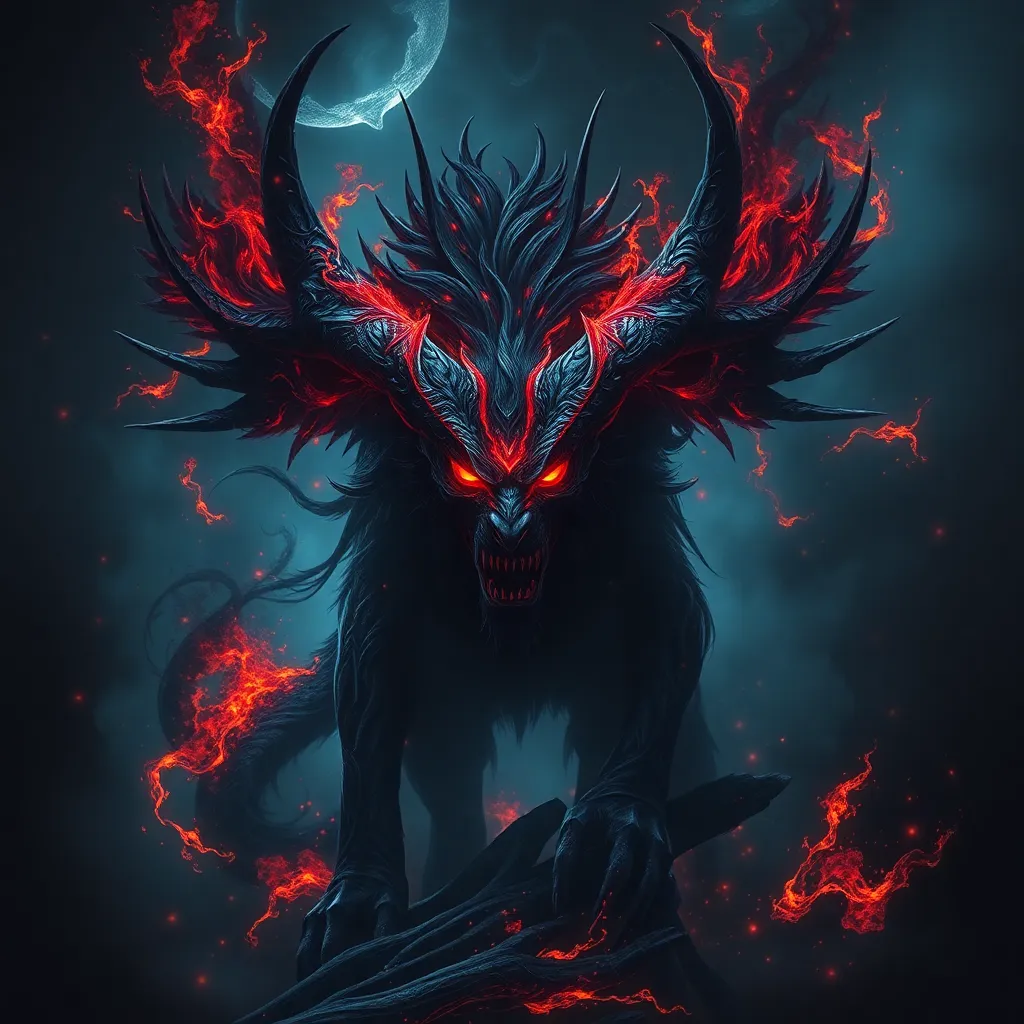The Legacy of African Mythological Heroes
African mythology is a rich tapestry of stories, legends, and beliefs that have been passed down through generations. These stories often feature mythological heroes who embody the values and aspirations of their people. From the cunning spider-trickster god of West Africa to the powerful Yoruba goddess of wind and storms, these heroes have left an enduring legacy on African culture and beyond.
1. Anansi: The West African Spider-Trickster God
Anansi is a popular figure in West African folklore, known for his cunning and mischievous nature. He is often depicted as a spider who uses his web to outwit his enemies and achieve his goals. As a trickster god, Anansi represents the power of intelligence and resourcefulness, and his stories often teach lessons about the importance of cleverness and adaptability.
2. Oya: The Yoruba Goddess of Wind and Storms
Oya is a powerful goddess in Yoruba mythology, associated with wind, storms, and the Niger River. She is often depicted as a fierce and independent woman, and her stories often focus on her strength and courage. As the goddess of storms, Oya represents the transformative power of nature, and her worship is often associated with rituals of purification and renewal.
3. Ogun: The Yoruba God of Iron and War
Ogun is a prominent god in Yoruba mythology, associated with iron, war, and hunting. He is often depicted as a strong and skilled warrior, and his stories often highlight his bravery and determination. As the god of iron, Ogun represents the power of technology and craftsmanship, and his worship is often associated with rituals of protection and success.
4. Shango: The Yoruba God of Thunder and Lightning
Shango is a powerful god in Yoruba mythology, associated with thunder, lightning, and fire. He is often depicted as a majestic and awe-inspiring figure, and his stories often focus on his strength and power. As the god of thunder, Shango represents the transformative power of nature, and his worship is often associated with rituals of renewal and purification.
5. Ayida Wedo: The Dahomey Warrior Queen
Ayida Wedo is a legendary figure in Dahomey history, known for her bravery and leadership. She ruled the Dahomey kingdom in the 18th century, and her reign was marked by military victories and political reforms. As a warrior queen, Ayida Wedo represents the strength and determination of women, and her story continues to inspire people today.
6. Ogun: The Yoruba God of Iron and War
In Yoruba mythology, Ogun is the powerful god of iron, war, and hunting. He is often depicted as a fierce warrior with a strong and muscular build. Ogun's stories highlight his bravery, determination, and skill in battle. As the patron deity of blacksmiths and metalworkers, Ogun represents the transformative power of technology and craftsmanship.
7. Shango: The Yoruba God of Thunder and Lightning
Shango is a prominent god in Yoruba mythology, associated with thunder, lightning, and fire. He is often depicted as a majestic and awe-inspiring figure, wielding a double-headed axe. Shango's stories focus on his strength, power, and transformative nature. As the god of thunder, Shango represents the unpredictable and powerful forces of nature, and his worship is often associated with rituals of renewal and purification.
8. Ayida Wedo: The Dahomey Warrior Queen
Ayida Wedo is a legendary figure in Dahomey history, renowned for her bravery and leadership. She ruled the Dahomey kingdom in the 18th century, leading her army to numerous military victories and instituting important political reforms. Ayida Wedo's strength and determination continue to inspire women and warriors alike, and her legacy serves as a testament to the power and resilience of women in leadership.
9. Mansa Musa: The Wealthiest King in History
Mansa Musa was the ruler of the Mali Empire in the 14th century. He is widely recognized as the wealthiest king in history, with an estimated net worth that surpassed even the richest individuals of today. Mansa Musa's wealth and power stemmed from the vast gold and salt resources of his empire. His famous pilgrimage to Mecca in 1324, during which he distributed immense amounts of gold, left a lasting impression on the world and contributed to the Mali Empire's reputation as a center of wealth and prosperity.
10. The Significance of African Mythological Heroes in Contemporary Culture
African mythological heroes continue to hold great significance in contemporary culture, both within Africa and beyond. These heroes embody the values, aspirations, and cultural heritage of African people. Their stories teach lessons about courage, resilience, wisdom, and the power of human ingenuity. African mythological heroes inspire creativity, provide cultural identity, and serve as role models for generations to come.
FAQ
Who is the most popular African mythological hero?
Anansi, the West African spider-trickster god, is one of the most popular and well-known African mythological heroes.
What is the significance of African mythology?
African mythology provides valuable insights into the cultural heritage, beliefs, and values of African people. It offers a rich tapestry of stories, legends, and characters that shape the identity and worldview of African communities.
How are African mythological heroes still relevant today?
African mythological heroes continue to inspire and teach people today. Their stories remind us of the importance of courage, resilience, wisdom, and cultural heritage. They serve as role models and provide valuable lessons that can be applied to contemporary life.



